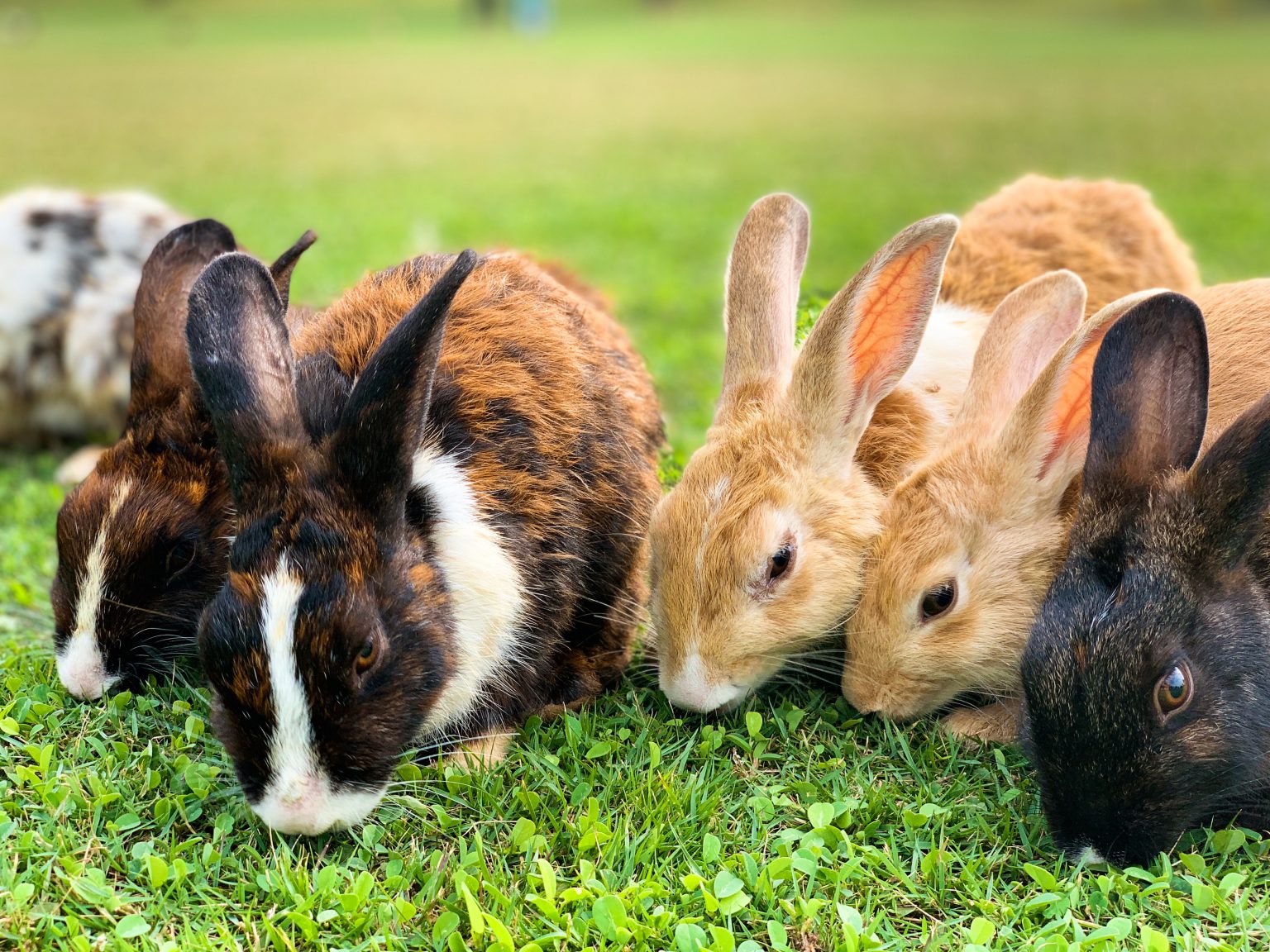
Success Stories
Case studies of feral rabbit colony management.
Kelowna
The City of Kelowna was overrun with feral rabbits. In 2008, the City called an exterminator in spite of protests from the local community. The exterminator’s cost was $52,000. The protests greatly escalated when the exterminator was caught stomping on a rabbit causing the City to redirect to a local rescue group. Roughly 800 rabbits were eventually rescued and housed in a number of enclosures hosted throughout the area. The city then passed a bylaw requiring all rabbits for sale or adoption to be sterilized. After three years Kelowna was virtually rabbit-free and the rabbits remain under control.
TRACS Feral Rabbit Relocation Program
Delta
Delta successfully trapped and sterilized hundreds of rabbits and released them into a contained park to live out their lives. The budget was set at $60,000, however, with veterinarians discounting their services and the many volunteers who helped out, actual costs were much lower than expected. The municipality noted that cost of the rabbit management program was also far less than the annual costs of repairing the damage caused by the rabbits in the civic precinct. Prior to the round-up, Delta had incurred approximately $350,000 in costs to repair damages caused by the rabbits to the buildings and grounds in the civic precinct. Similarly, in 2011, the Delta Hospice spent approximately $70,000 to repair landscape damage caused by rabbits. A spay/neuter law and diligent animal control has kept the rabbits in check.
Richmond Auto Mall
Rabbitats was looking for an inaugural rescue project at the same time the Richmond Auto Mall was looking for a solution to their rabbit infestation problem. Rabbitats approached the Richmond Auto Mall Association, a body representing the 14 dealerships on site, with a plan and a proposed budget covering five years of ongoing support to be split amongst the businesses, public donations and event fund-raising. A holding space in an empty dealership was used to house the rabbits. Permanent space was initially found at a farm in Delta, but a better option surfaced in South Surrey. A sanctuary to house 120 of the estimated 250 rabbits was built at that location. The remaining rabbits were adopted out in smaller groups. A semi-permanent garage was eventually offered to the rescue as a shelter and they began accepting rabbits from other areas.
South Surrey Sanctuary
Rabbitat’s South Surrey sanctuary houses 100 to 125 Richmond Auto Mall rabbits. It was built for less than $4000 (including a 20-ft shed) in a rescue partner’s courtyard with additional space in their barn using wood, wire, road base, netting, and later acrylic roofing panels. A volunteer built custom bunny houses and feeders. The sanctuary is secure from human and animal predators. The set-ups ensures easy maintenance. A volunteer spends 60 minutes a day on rabbit care with extra cleaning sessions on weekends. The rabbits eat roughly 12 bales of hay and 40 lbs of pellets a month, and donated produce cast-offs, grass. tree branches, etc. daily.
Semiahmoo Animal Rescue League
Semiahmoo Animal Rescue League (SALI) provides animal therapy for at-risk children using rescued at-risk animals. SALI and Rabbitats teamed up to build an indoor/outdoor ‘rabbitat’ housing eight rabbits who provide endless joy and healing to the kids.

Article written by:
Sorelle for Rabbitats Rescue Society
Sorelle is the founder of Rabbitats Rescue. She works tirelessly applying for grants, doing research, developing our business plan, and attending meetings and conferences to spread the message about the issue of rabbit abandonment and feral rabbits. She is a major component of the rabbit rescue world and is constantly helping others and offering support to other rabbit rescues.


